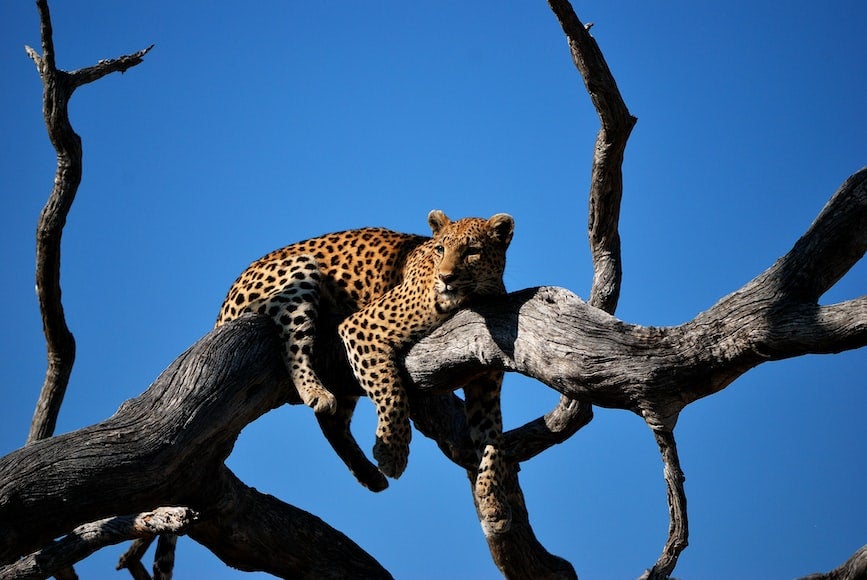Botswana government to review compensation for victims of wildlife attacks
Human wildlife conflict said to disrupt rural economic activities and worsen poverty

By Keletso Thobega for Botswana Guardian
Botswana’s government is undertaking a review of how much compensation victims of human-wildlife conflict are paid after repeated complaints the amounts are too low.
The Government does not offer monetary compensation in incidents of animal attacks or injury.
It covers costs of transport to the clinic and medical assistance. In the event of death, the family of the deceased is given P70,000 (GBP4,600), to cover funeral costs and loss of income from the deceased.
The Government only pays compensation in cases of livestock killings by predator animals; which is 35% of the value of the killed livestock. Where wildlife destroys farmers’ crops, the
Government pays for the costs incurred for the destruction, for example the cost from a quotation for broken fences or seeds for the said destroyed crops.
Total compensation costs incurred by the Government in the past ten years add up to more than 6 million Pula (GBP391,000) according to the Department of Wildlife and National Parks management.
This review underway now will pave the way for the amendment of the Wildlife Conservation and National Parks Act of 1992, particularly section 87 that describes the Government’s obligations in terms of injuries and loss of life caused by wildlife.
The government is currently working with different stakeholders to review and implement recommendations that include providing comprehensive therapeutic rehabilitation, reconstructive surgery, and compensation that correlates with the severity of the sustained injuries.
The Director of Wildlife and National Parks, Kabelo Senyatso, confirmed that changes are imminent, adding that they have been working with several stakeholders on the processes.
“It is something that we are definitely looking into. It has been on the table for a while. We are engaging with different stakeholders so that we can devise a more effective system,” he said.
Senyatso said that the situation of human-wildlife conflict had improved when the hunting ban was lifted but now the challenge is the impacts of climate change which affect the movement of animals, posing a higher risk of animal-human contact.
“Due to changing temperatures and decreased water and food sources, we see animals moving around a bit more than usual and they sometimes end up in settlements encroaching communal lands and farming areas in search of food and water,” he said.
Senyatso noted that there is a growing list of claims from farmers whose fields and crops are destroyed by wild animals.
He said there are also claims for livestock that is eaten by wild animals.
A 2021 report by Botswana Institute for Development Policy Analysis (BIDPA) indicates that human-wildlife conflict worsens poverty and is increasingly transforming rural livelihoods from dependence on arable production and livestock keeping towards dependence on Government- aided destitute programmes and other unstable sources of livelihoods.
Findings also indicate that many people who live in wildlife areas said that accessing social safety and compensation services is a tedious process.
The report indicates that 35 percent of animal attacks are from leopards and 26 percent from elephants, with an average of 65 percent of human deaths on account of animal attacks being caused by elephants.
A recent incident that raised concern about the growing threat of animal attacks and lack of adequate compensation involves farmer Bashi Kabo of Matopi in the north-eastern part of the country, who was attacked by a leopard at his farm.
Kabo was on a cattle grazing outing when a leopard emerged from a nearby bush thicket and pounced on him. He was unarmed and unprepared.
The leopard overpowered and wrestled him and only left him after he curled himself helplessly into a ball.
Kabo suffered grave psychological trauma and sustained injuries including a blow to the skull and deep scratches on the head and neck, as well as internal bleeding.
The Department of Wildlife and National Parks has indicated that they can only offer animal attack victims transport for clinic visits as there is no stipulation to offer financial assistance or compensation to individuals attacked by wild animals, save for P70,000 (£4,650) compensation offered to a family in the event that the victim dies from injuries.
This article is reproduced here as part of the African Conservation Journalism Programme, funded in Angola, Botswana, Mozambique, and Zimbabwe by USAID’s VukaNow: Activity. Implemented by the international conservation organization Space for Giants, it aims to expand the reach of conservation and environmental journalism in Africa, and bring more African voices into the international conservation debate.
Read the original story here.

Join our commenting forum
Join thought-provoking conversations, follow other Independent readers and see their replies